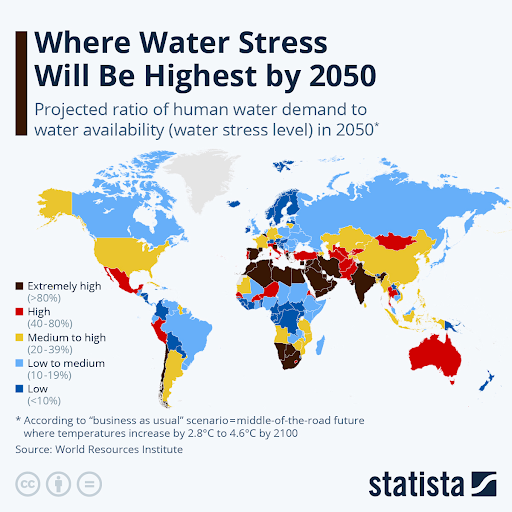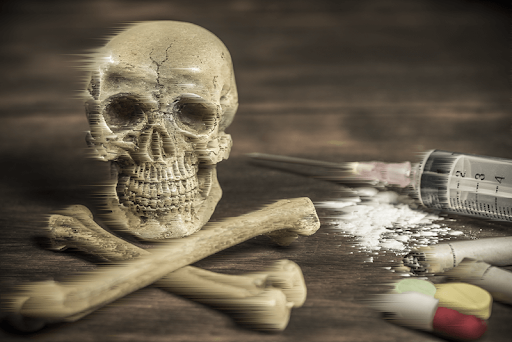
Think about how much water you use or consume in daily life. You usually drink around 4 liters of water daily, and then you eat food prepared with water. Most people don’t think of water as a pressing matter, but the 2 billion people without access to clean drinking water do. The global water crisis, according to a recent publication from the Global Commission on the Economics of Water, is causing 1,000 kids to die just because safe water is in limited supply. These problems are usually prevalent in 3rd world countries that are the world’s leading source of food production.
This problem should be addressed by the UN and have a clear call to action. Yet, as the UN conferences go by, they fail to make any changes, seeing that only one discussion about this crisis has happened in the last 5 decades. As we continue to ignore these issues, climate change worsens and directly impacts this resource shortage. If no changes are made, by 2050, third-world countries can expect a 15% global gross domestic product loss. This means that because the GDP is decreasing, these countries aren’t seeing any exports of resources but are seeing large amounts of imports.
Fortunately, the UN appointed a spokesperson from Indonesia who specializes in water-related issues, Retno Marsudi. The crisis will become more prominent as time goes on, so the UN and Retno Marsudi should address these issues and find a solution that prioritizes those who cannot get clean water or have to pay extremely high prices. While there is no viable solution to stopping climate change or removing all the waste in these water systems, other options exist. For instance, they could be taking portions of money meant to be spent on climate issues from wealthier, non-third world countries and funding a cleaning project to work towards safer drinking water.
This issue is critical to address because water is a product that is needed to support human life and functions. Imagine going months drinking unclean water that puts you at risk of getting infected with an illness. If you aren’t getting a proper amount of it or getting an amount that’s safe to drink, then the risk of disease and death increases dramatically. This is not just a problem of economy and supply; it’s also a matter of human life.




